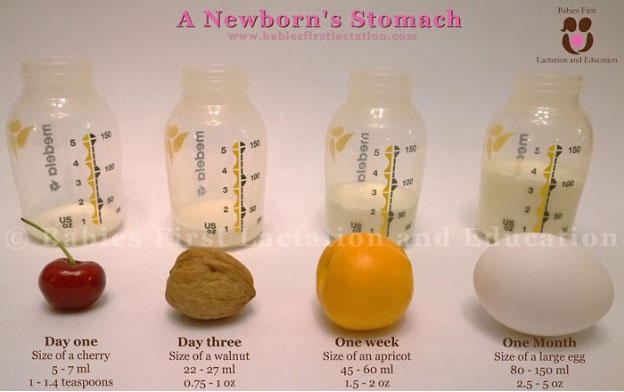Please understand that in most cases babies are just too little to think logically therefore too little for us to expect them to understand not to hurt themselves, others, or stuff!
“Discipline” for an infant means meeting her needs and providing a predictable life with predictable behaviors from those around her.
I’ve heard moms talk about “what a bad baby” their child is because, she cries a lot or won’t sleep through the night or won’t sit quietly at church or grabs things or pees on them or refuses food, and on and on. What if ALL of that is part of learning and growing for a baby?
Babies explore their world to discover it. That can be a messy process! How you as the adult look at this behavior will shape your expectations of your babe. Are you having realistic expectations of your baby? Here are factors that shape a baby’s behavior:
-
Temperament:
- There are many definitions and discussions of temperament. Here is an excerpt from a paper I wrote about the influence of temperament on challenging behavior: “Temperament is classically defined as the expression of inborn characteristics associated with self-regulation, emotionality, and soothability that are present at birth and that mark our personality for the duration of our lives (Bates, 1989; Henderson & Wachs, 2007; Kagan, 1994; Rothbart & Bates, 1998). Kagan (1994) defines temperament as “any moderately stable, emotional or behavioral quality whose appearance in childhood is influenced by an inherited biology.” Temperament is typically assessed as a child’s self-regulation and attentional abilities. While there are several different temperament theories in psychological and education research, a popular model classifies temperament into three categories: fearful, feisty, or flexible. Regardless, until recently, such models suggest a life sentence to one temperament category.”
- All temperament types will have to deal with learning appropriate behaviors but on the temperament spectrum those kids with a feisty temperament give us parents more challenges than the flexible or fearful kiddos. All kids possess all of the temperament traits but will lean more toward one than the others. So if your child was born with a feisty personality, then you’ve already learned that conforming to sleeping, eating, and toileting routines can be a challenge. Feisty personalities respond well to having some warning before transitions or a change in what they are doing—yes, do this with your baby too! She will understand you over time and building a respectful relationship is a big part of guiding your children. Having routines they can count on can ease their minds.
-
Unmet basic needs:
- Food (and fluids)! The size of a baby’s stomach is very small, therefore, she’ll need to eat more frequently to meet the demands of her growing body. The picture gives you some idea of the first month of life. Starting in infancy and throughout childhood, growth spurts will happen and she’ll need you to feed her more frequently at those times. If you don’t meet this need, she will do what she knows to do: cry and scream to be cared for.

- Sleep! Sleep needs will vary from baby to baby. You may already know this, but babies really don’t understand yet that nighttime is for sleeping and daytime is for everything else. Learning to sleep at night might come fast for some and not so fast for others. Teething, growth spurts, growing pains, gas, and hunger are all common physiological reasons babies wake up from sleep and have a hard time falling asleep. Newborns will sleep a lot between feedings and as they grow and need to be fed less often, many babies will stay awake longer in the daytime. Their naps may shorten to one morning and one afternoon nap, each lasting around an hour and a half, and then longer sleep times at night. Be respectful of her need to sleep! Keeping her up and going when she’s sleepy will result in a cranky baby.
- Love and attention! See my blog on this subject here. When these needs go unmet, your baby will cry and twist her body for your care. Love and attention have been identified as basic human needs, and in extreme cases of neglect, babies have died because of lack of this care.
- Food (and fluids)! The size of a baby’s stomach is very small, therefore, she’ll need to eat more frequently to meet the demands of her growing body. The picture gives you some idea of the first month of life. Starting in infancy and throughout childhood, growth spurts will happen and she’ll need you to feed her more frequently at those times. If you don’t meet this need, she will do what she knows to do: cry and scream to be cared for.
-
Developmental leaps:
- Her ability to understand what you are saying will come before her ability to respond. This can cause a lot of frustration and upset! Of course, this frustration is seen mostly in toddlers, but maybe your baby is upset because she desperately wants you to understand her.
- As her eye sight begins to focus and her desire to explore expands, she will want to move toward new things and can become upset at her inability to move! It can be a very upsetting process when learning to crawl, roll, skootch, and walk. You may see more crying, fits, and throwing of things at these times.
- Learning how her body works will provide a lot of motivation for her to experiment! She may twist and twist and twist while you are trying to change her diaper—this isn’t to annoy you, really. She’s experimenting and exploring, and you’ll have to kindly work with her to cooperate with you.
- Life changes are challenging for us, but also for babies. The care we take to reduce the stress around troubling times for our babies will help sooth them and calm upset behaviors. Here are some stressful life circumstances for babies:
- Death of a loved one
- Divorce
- Parent going back to work
- Moving
- Addiction issues of a loved one
- And more…


